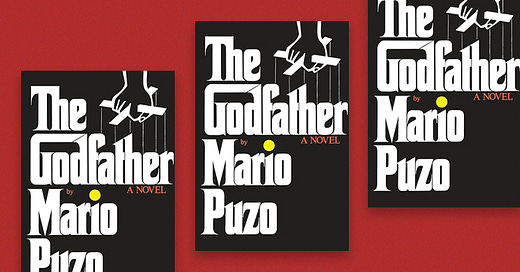The brutal truth about book advances
What publishers really paid for more than 100 books from 'Uncle Tom's Cabin' and 'The Godfather' to 'Gone Girl'
My literary agent sounded disappointed when she called to say a major publisher wanted to buy my first novel. She said the firm had made “a tiny offer” of $10,000.
The agent was a power player at a high-prestige agency and expected more after I’d received $25,000 for an earlier nonfiction book.
But I was thrilled. I was the book editor of a Midwestern newspaper and knew $10,000 was realistic—some agents might even have said “good”—for a first novel by an author with no track record in fiction. It was twice as much as the $5,000 that G.P. Putnam’s Sons had paid Mario Puzo for The Godfather.
We accepted the offer, and my novel earned back several multiples of its advance in royalties, serial rights, and a movie option that really was “tiny”: $750. It was good enough that I sold a second novel for $10,000.
How typical was my experience?
The truth about ‘six-figure’ advances
You might imagine from media reports that successful authors are all signing break-the-bank deals with publishers. But for all but the heaviest hitters, book advances have been stagnating or declining for years.
The picture gets worse when you look at how publishers pay “advances,” the up-front money you get for a book.
Let’s say that you get a $100,000 advance. Your literary agent will take a 15% commission. In the U.S., you’ll also owe federal and state income taxes on your advance, which could eat up another 30% or more. And publishers pay on an installment plan. You used to get half of your money when you signed the contract and half when you turned in an acceptable manuscript.
Advances today may be paid in thirds, fourths, or fifths. If your contract calls for you to get a quarter of your money on signing it, that $100,000 might get you only $25,000 up front. That’s before the agent’s commission and taxes, and it will have to cover your expenses until the next installment arrives. That impressive-sounding “six-figure advance” may leave you subsisting on freeze-dried ramen and struggling to pay the rent, especially if your book involves steep travel or research expenses.
Did authors have it better in the past?
When you see how little some authors are expected to live on, you might wonder if they used to earn more. But, in some ways, publishers have always played a game of, “How low can you go?”
Or so I learned in 2023 when I posted on Medium a list of 63 advances paid to famous and obscure writers that I expanded in 2024. For the alphabetical list of authors below, I’ve updated and merged those two lists and added dozens of advances I’ve learned of since last year. I’ve converted pounds to dollars but not yesterday’s dollars to today’s.
Many books are sold without titles, and I arrived at the “more than 100” in my subtitle by counting both titled and untitled books. You’ll find a note on my sources at the end.
Martin Amis, ‘The Information’ — £500,000 ($615,655)
British advances historically have been lower than those in the U.S., and the English novelist Martin Amis sparked an uproar when he demanded £500,000 for The Information after the success of his Money and London Fields. His publisher, Jonathan Cape, had offered £300,000. Amis left Cape and later said he wished he had stayed.
“For years it was the number one thing people asked about,” he told the Guardian, “and it was not my finest hour.”
Sally Beauman, ‘Destiny’ — $1.5 million
After writing a few romances, Sally Beauman sold her first mainstream novel to Bantam for $1.5 million. What enabled her to break out of the genre with Destiny? Beauman was “that rare phenomenon—a writer whose prose sang and who could at the same time tell stories that captivated millions,” the Guardian said in her 2016 obituary.
Keep reading with a 7-day free trial
Subscribe to Jansplaining to keep reading this post and get 7 days of free access to the full post archives.




